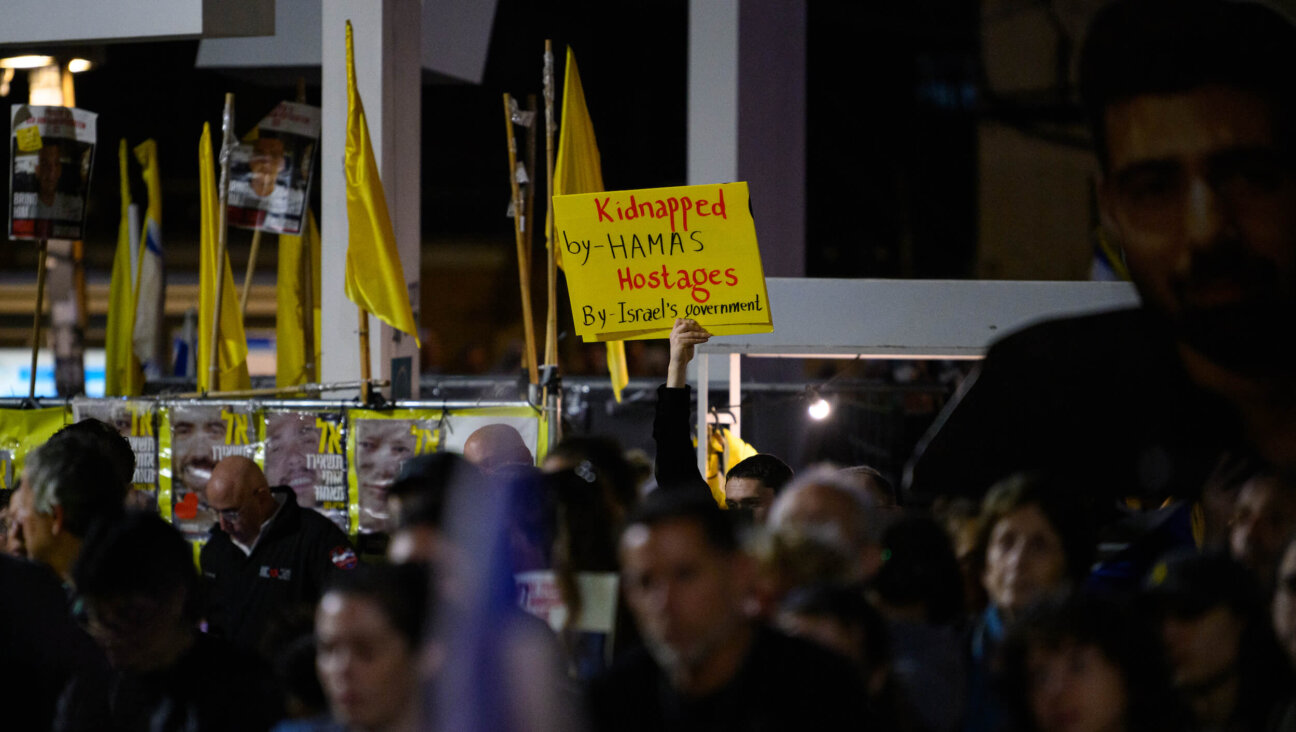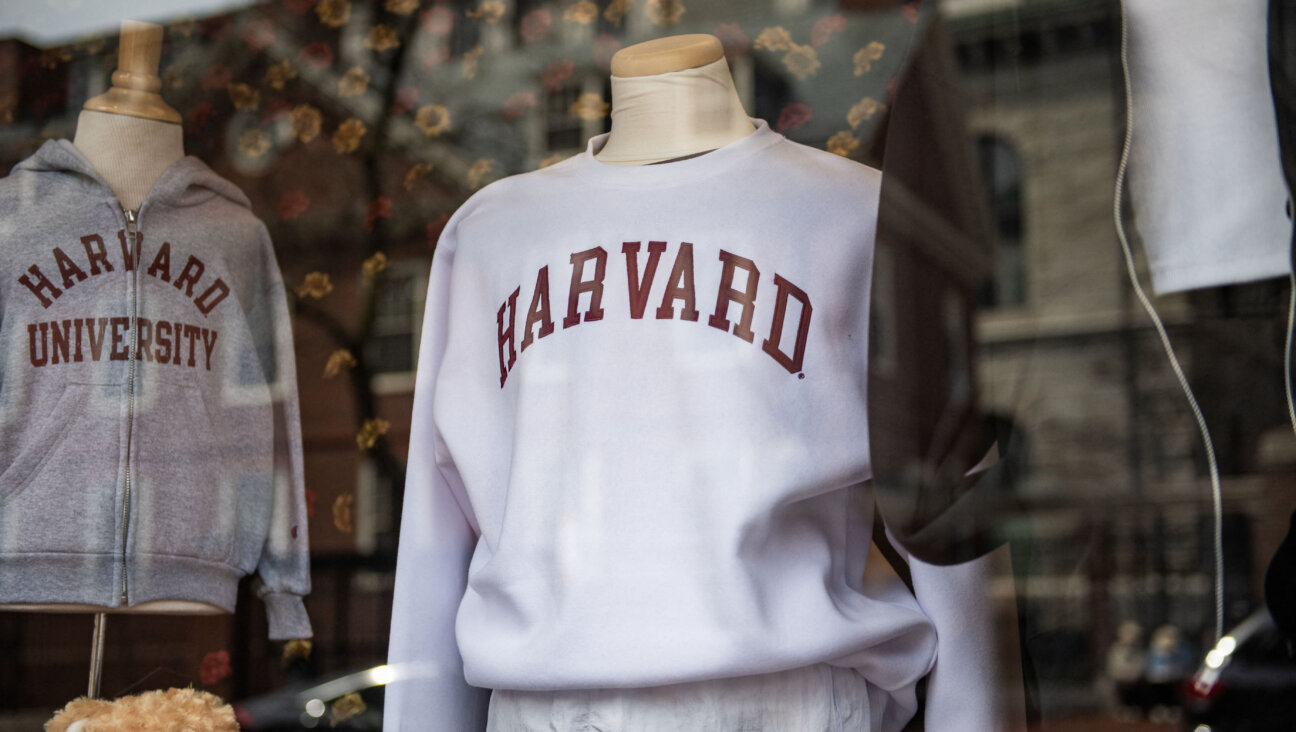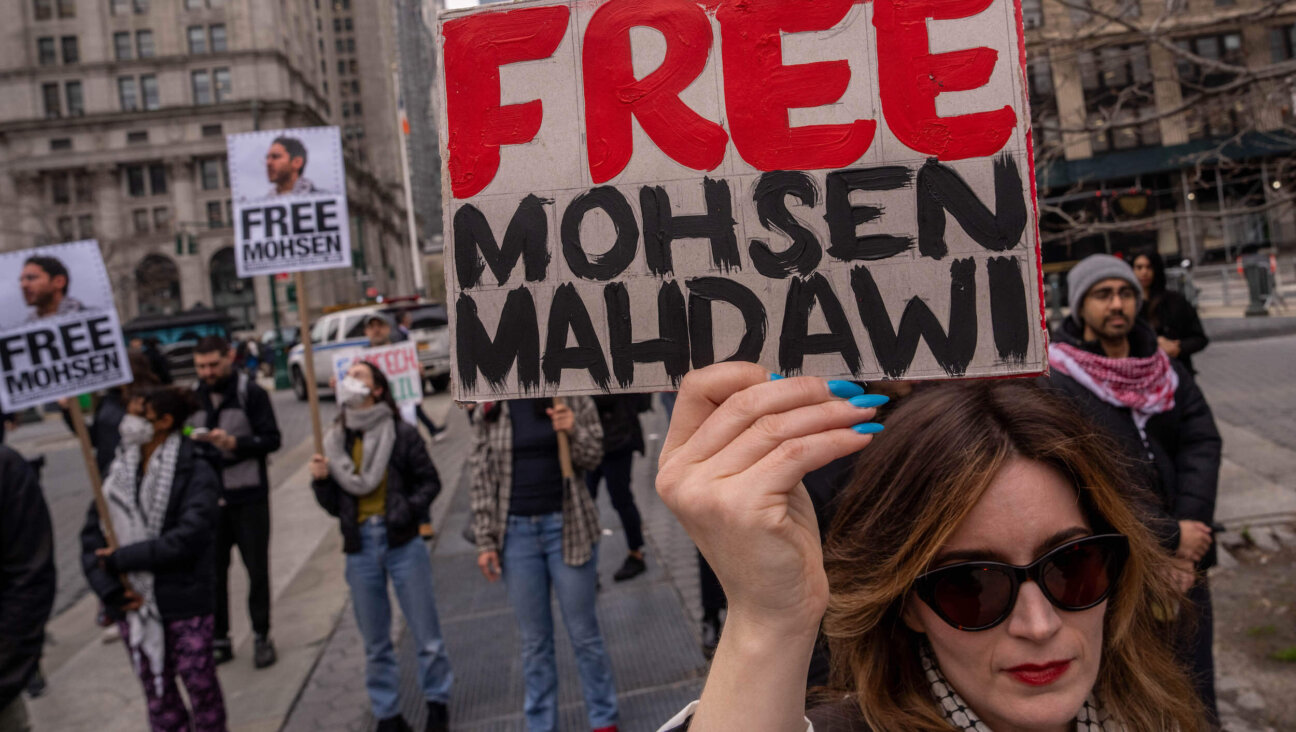Enough Tridentine Mass Hysteria
In this day and age, Jews should not be overreacting to Pope Benedict XVI’s revision of the Good Friday prayer calling for our people “to acknowledge Jesus Christ the Savior of all men.” A very small minority of Catholics saying these words in 2008 is very different in its threat to Jews than every Catholic saying these words in 1668.
Of course, it would have been wise and surely more comforting to Jews — not to mention educative to Catholics — if the pope, in permitting this prayer and rewriting it, had also recalled the historical violence that such prayers and attitudes evoked throughout history. But Jews should chill out rather than turn this into one more drama of how the world hates us.
In truth, there is something sad about a world religion with more than 1 billion people feeling so insecure that in 2008 it needs to put back into a prayer recited on one of its holiest days a call for another people, one barely 15 million strong, to see the light.
I actually appreciate Pope Benedict XVI’s honesty and the uncomfortable realization he is raising. Whether we are traditional or liberal, secular or religious, somewhere deep inside our own consciousness we all believe that the truth upon which we ultimately stake our lives is in some serious ways preferred, greater and truer than the truth others possess. If that wasn’t the case, we would just fashion other commitments.
Secular fundamentalists like Richard Dawkins and Christopher Hitchens, whose bestselling books are dismissive of religion, surely think their truth is superior to religious truth and most definitely want to convert people to their view. Liberal Christians and liberal Jews wish that traditionalists and conservatives in their communities would see the light and often lament, in private if not publicly, what they see as the primitive level of the traditionalists’ worldview.
And surely traditional Jews, who in recent years reinserted in the Aleinu prayer, “for they bow to vanity and emptiness and pray to a god which helps not,” believe their truth is superior to the truth of others and hope that everyone will one day come to bow down to the One True God. (Isn’t it good that gentiles do not know Hebrew or don’t really care about what we pray?)
When we fail to recognize how inevitably we privilege our own truth or make believe this is not the case and claim all truths are equal — as is the case with most politically correct interfaith and intercultural dialogue — we wind up trading honesty for the chimera of agreement, integrity for niceties, and passion for the illusion of harmony.
Perhaps by eliminating the pejorative language of “blindness and veils” and at the same time leaving in the honest hope and prayer that others will see the light Catholics see, the pope is attempting to hold together the passionate commitment absolute truth evokes with the tolerance and openness that genuine ecumenism requires. Traditionalists will likely embrace the absolute truth side of the pope’s pronouncement, and will minimize or even be angry about any revision of the ancient words. Religious liberals and especially Jews, meanwhile, will invariably be wary of the absolute privileged truth side of the prayer, which they will see as demeaning and potentially dangerous. Each side will ignore or will be crazed by the part of what the pope said that challenges them.
But what if Pope Benedict XVI is inviting us to hold together in our consciousness what appears to be contradictory intuitions: a commitment to absolute truth and to genuine openness? We need to admit to ourselves that we do believe that the truth we ultimately stake our life on is deeper than what others possess, and at the same time we need to embrace that this is not incommensurate with a deep ecumenism.
One might call this post-postmodern — neither a traditionalist understanding of the truth in the pre-modern sense, with its arrogant absolutism, nor a relativistic understanding of the truth in the postmodern sense, with its false humility that all truths are really equal except, of course, this truth. Call it a humble absolutism.
Ultimately, the crucial measure for a religion is if its teachings and practices help us remove the veils from our own hearts — that is, become more humble and honest about our own lives and more compassionate and loving to all of God’s creatures. If returning to the Latin Mass and reasserting the hope that Jews find salvation in Jesus does this for Catholics, then all will be well.
If, on the hand, this “reform of the reform,” as the pope has called it, leads traditional Catholics to a sense of self-righteousness toward other Catholics and superiority to believers in other faiths, then Pope Benedict XVI will have simply reaffirmed what so many people sincerely yearning for the truth already feel about organized religion — namely, that it does more damage than good, divides people far more than it connects them, and teaches us to loathe rather than to love.
Rabbi Irwin Kula, president of CLAL-The National Jewish Center for Learning and Leadership, is the author of “Yearnings: Embracing the Sacred Messiness of Life” (Hyperion, 2006).
The Forward is free to read, but it isn’t free to produce

I hope you appreciated this article. Before you go, I’d like to ask you to please support the Forward.
Now more than ever, American Jews need independent news they can trust, with reporting driven by truth, not ideology. We serve you, not any ideological agenda.
At a time when other newsrooms are closing or cutting back, the Forward has removed its paywall and invested additional resources to report on the ground from Israel and around the U.S. on the impact of the war, rising antisemitism and polarized discourse.
This is a great time to support independent Jewish journalism you rely on. Make a Passover gift today!
— Rachel Fishman Feddersen, Publisher and CEO
Most Popular
- 1

News Student protesters being deported are not ‘martyrs and heroes,’ says former antisemitism envoy
- 2

News Who is Alan Garber, the Jewish Harvard president who stood up to Trump over antisemitism?
- 3

Fast Forward Suspected arsonist intended to beat Gov. Josh Shapiro with a sledgehammer, investigators say
- 4

Opinion My Jewish moms group ousted me because I work for J Street. Is this what communal life has come to?
In Case You Missed It
-

Fast Forward Is ‘New Absolute Bagel’ real? A sign stirs fretful optimism on the Upper West Side.
-

Opinion Yes, the attack on Gov. Shapiro was antisemitic. Here’s what the left should learn from it
-

News ‘Whose seat is now empty’: Remembering Hersh Goldberg-Polin at his family’s Passover retreat
-

Fast Forward Chicago man charged with hate crime for attack of two Jewish DePaul students
-
Shop the Forward Store
100% of profits support our journalism
Republish This Story
Please read before republishing
We’re happy to make this story available to republish for free, unless it originated with JTA, Haaretz or another publication (as indicated on the article) and as long as you follow our guidelines.
You must comply with the following:
- Credit the Forward
- Retain our pixel
- Preserve our canonical link in Google search
- Add a noindex tag in Google search
See our full guidelines for more information, and this guide for detail about canonical URLs.
To republish, copy the HTML by clicking on the yellow button to the right; it includes our tracking pixel, all paragraph styles and hyperlinks, the author byline and credit to the Forward. It does not include images; to avoid copyright violations, you must add them manually, following our guidelines. Please email us at [email protected], subject line “republish,” with any questions or to let us know what stories you’re picking up.












